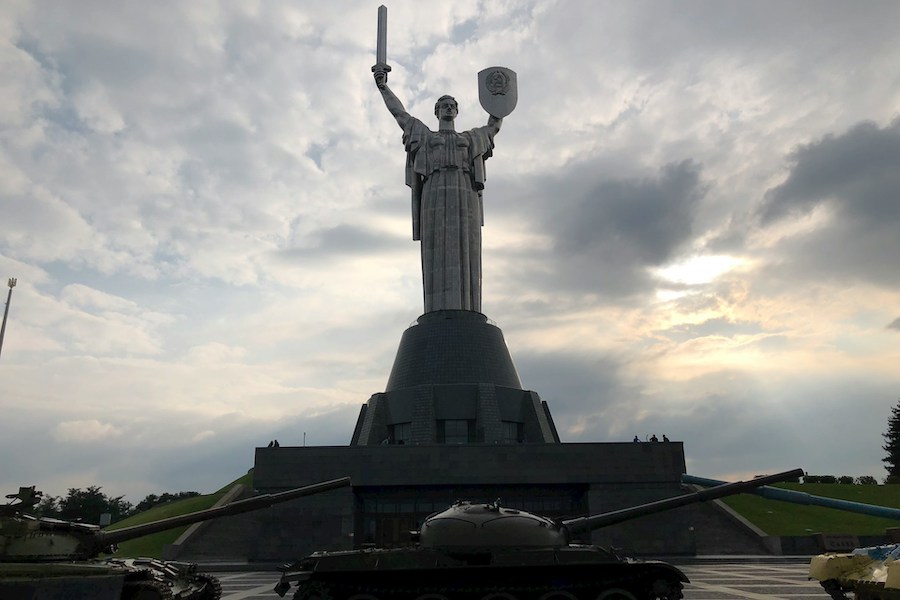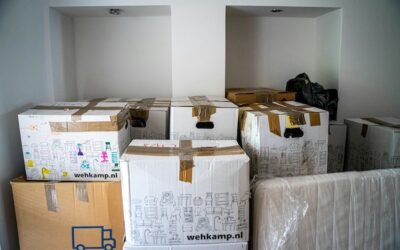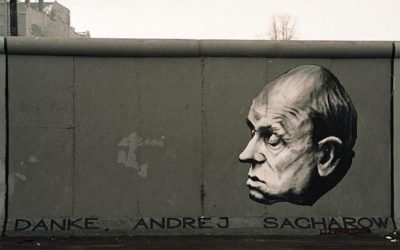Ukraine and Ukrainians in Russian higher education and science
Dmitry Dubrovsky
Photo: Denying the statehood of Ukraine—a stance that used to be part of the official discourse in Russia—is now being framed in university history courses as a “scientific approach to the study of Russian history.” Photo by zeynep elif ozdemir on Unsplash
Aggressive historical policies have long been a key component of the Kremlin’s authoritarianism. They directly threaten the freedom of history, both in research and instruction.
Today, these policies are focused on Ukraine. The Ukraine issue has become one of the most popular topics when justifying military aggression. Ukraine’s historical identity and the uniqueness of the Ukrainian people are denied.
Putin on Ukraine
Putin’s “historical” investigations and discussions of historical topics in his February 2024 interview with Tucker Carlson showed that this issue never ceases to be relevant both for propaganda and for Putin’s own purposes.
In his article “On the Historical Unity of Russians and Ukrainians,” Putin argues that based on their shared historical past in pre-Mongol Rus’:
- there is no difference between the Russian and Ukrainian peoples
- the annexation of Ukrainian lands to the Tsardom of Muscovy was “democratic”
- the main source of Ukrainian nationalism comes from abroad and supposedly reflects Austrian and Polish political plots against Russia
Then the Bolsheviks made a “big mistake” by “dividing the great Russian nation.” In other words, Putin simply denies the Ukrainian nation any subjectivity prior to the revolution, claiming that “Ukraine was created by Soviet power.”
Finally, Ukraine is now “under external control,” the goal of which is to “turn Ukraine against Russia” and thus undermine the power and greatness of Russia.
Putin’s article is used as an ideologeme; historical research and educational programs are built on it, and this seriously compromises the quality of Russian education and science in the field of history.
Scholars of Ukraine
The launch of the full-scale invasion affected Russia’s leading Ukrainian scholars in various ways.
Researchers who have worked in Ukrainian studies do not actually support the aggressive anti-Ukrainian and ahistorical narrative. Moreover, serious historians—with some sad exceptions—do not participate in the production of ideological texts outlining the “correct” history of Ukraine.
Head of the Center for Ukrainian Studies at St. Petersburg State University and Doctor of Historical Sciences Tatyana Tairova-Yakovleva was fired for making anti-war statements in June 2022. The center has virtually ceased to exist.
The Center for Ukrainian Studies at the Institute of Europe of the Russian Academy of Sciences in Moscow continues to operate. Its director, V. Mironenko, tries not to participate in the ideological mayhem surrounding Ukrainian Studies, although this visibly contradicts the purpose of the research center as officially stated on the website of the RAS Institute of Europe: “… special attention is paid to the analysis of the hybrid confrontation between the West and Russia in Ukraine.”
Support for “Ideologically Correct” Projects
Putin’s anti-Ukrainian ideology has seriously affected funding for scientific projects through the leading grant instrument for the development of Russian humanitarian and social knowledge—the Russian Science Foundation (RSF). The rhetoric expressed by those projects related to Ukrainian history and politics that do gain support is very telling.
A grant supported by the Russian Science Foundation in 2014 begins with the statement that “… the growth of Ukrainian nationalism is a consequence of the deep socio-economic and political crisis into which the elite has plunged the country in recent decades, and its origins stretch back into the past.” The authors of the grant application state that “the conflict is based on geopolitical interests,” that the parties involved in the confrontation are “the United States and Russia,” and that “the return of Crimea became an exemplary operation.”
One 2017 research project was devoted to alleged Ukrainian and USAID support for “extremist” nationalist organizations with a view to undermining “stability” in Crimea.
Another 2022 project involves the development of “an effective method for assessing social tension and protest potential associated with the situation of the transition of statehood in post-Ukrainian territories” (as the authors refer to the Russian-occupied territories).
The only one of the sixteen projects on Ukraine supported by the Russian Science Foundation not to follow this narrative was shut down ahead of schedule following a review by a foundation expert. He was upset about the fact that “… the report [produced by the project] contains rhetoric that differs from the political assessments given in official documents from the Russian government…Why are the Lugansk and Donetsk People’s Republics called ‘people’s republics’ in quotation marks?”
Ukraine in the Curriculum at Russian Universities
The process of equating history with weapons—what researchers call the “weaponization of history”—is increasingly obvious. What was previously part of the official discourse justifying the war—primarily the denial of the statehood of Ukraine—is framed in university history courses as a “scientific approach to the study of Russian history.”
“Ukraine: Morphology and Mythology.” This online course has been taught at St. Petersburg State University since March 2022. Students are invited to discuss “the systemic crisis that has struck Ukraine since 2014.” The course covers the following topics:
- “history and myths in the formation of Ukrainian statehood”
- “social processes and specifics of the foreign policy of Ukrainian society”
- the “information war in Ukraine”
The author of the course is Doctor of Economics and St. Petersburg State University Professor Nikolai Mezhevich, known for his conservative and anti-Western views.
This anti-Ukrainian stance is most clearly reflected in the educational and methodological materials for the courses The History of Russia and Fundamentals of Russian Statehood.
“Fundamentals of Russian Statehood.” A special textbook for this course has already been prepared, as well as accompanying instructional and educational materials and certain practical recommendations. Predictably, they restate the main arguments made in Putin’s article dedicated to the “unified people” and provide a detailed justification for Russia’s aggressive foreign policy.
In particular, in the textbook on the “Fundamentals of Statehood,” the 2004 Orange Revolution in Ukraine is called an “unconstitutional regime change” that came to represent a “challenge to the Russian political system.” The authors justify direct intervention by the Russian Federation in the affairs of sovereign states as a legitimate response to such a challenge.
The authors of the textbook employ the following line of reasoning:
- The Russian Federation is the legal successor of the Soviet Union
- The Soviet Union is historical Russia
- Fragments of the former Soviet Union that express an anti-Russian stance can be reassembled in the interests of the Russian Federation
The same textbook claims that “in 2022 [that is, as a result of the outbreak of war—author’s note] began the restoration of the unity of the Russian people,” which, following the collapse of the Soviet Union, according to Vladimir Putin, “became one of the greatest, if not the greatest, divided nation in the world.”
Concept on Russian History Instruction. No less indicative is the text of the Concept on Russian History Instruction—the second of the mandatory courses introduced into the education program after the start of the war.
In the first part of the Concept, which begins with the creation of the Old Russian state, there is no mention of “Kievan Rus”:
“A state emerged, called ‘Rus,’ or ‘Russian Land,’ centered in Kyiv.”
The conquests of the Russian Empire are described as a “natural incorporation.” No mention is made of the empire’s aggressive, expansionist policy—territories were simply “annexed.”
According to the text of the Concept, “The western part of Belarus and Ukraine joined the USSR” in the same miraculous way in 1939. At the same time, the policy of indigenization (development of national cultures) is described by the authors as the imposition of “alien cultures on the people.” As examples of the populations affected by this policy, it lists “the territories of Donbas, Novorossiya, and other regions that were annexed to Ukraine by voluntary decision.”
In the section about the “Great Patriotic War,”* the course materials propose a discussion of the Vlasovites, “the formation of nations,” and, separately, the Organization of Ukrainian Nationalists (OUN) and the Ukrainian Insurgent Army (UIA). Undoubtedly, this separate mention of the OUN-UIA is associated with one of the main objectives of the propaganda narrative—to equate OUN’s historical collaboration with the Nazis with the behavior of the modern Ukrainian government.
* The term used in the Soviet Union and sometimes in present-day Russia to describe the part of the Second World War in which the USSR participated.
Ukraine as an “Architect of Russian History”
Ukraine becomes, in a sense, an “architect” of Russian history in the section devoted to events after the collapse of the USSR.
First, the authors discuss the “color revolutions,” with a separate section devoted to “Russia and the Orange Revolution of 2004.”
Next, the course suggests instructors cover “the world entering a period of ‘political turbulence’” that includes, among other events, “the declarations by the Georgian and Ukrainian leaderships of their intentions to join NATO.”
The subsequent tracing of the “historical narrative” reads like a summary of the official Russian state position justifying military aggression against Ukraine. Indeed, this progression looks like a list of headlines from the official Russian press:
- Refusal of the US, NATO, and the EU to discuss threats to Russia’s national security
- Turning Ukraine against Russia
- The anti-constitutional coup in Ukraine
- Armed provocations and preparation by the Ukrainian regime for the forceful takeover of the Donbas republics
- Official Russian recognition of the LPR and DPR
- The beginning of the special military operation in Ukraine
- Western pressure on Russia through sanctions and attempts to isolate it from the rest of the world
Finally, the text concludes:
“The situation in Ukraine, whose leadership turned the country ‘anti-Russia’ and, with the help of NATO, was preparing for the ‘return of Crimea and Donbas,’ led to the inevitability of the special military operation by Russia in 2022.”
Thus, in their own way, both courses provide ideological support for the official aggressive trajectory of the Putin regime, not only justifying present aggression, but also denying Ukraine its historical identity.
This kind of narrative excludes critical thinking, doubt, or debate. This version of historical policy, which is carried out through instruction, is certainly an example of indoctrination of students and an integral part of the Kremlin’s ideological project.
* * *
The effectiveness of this kind of “anti-Ukrainianism” in Russian higher education and science is difficult to assess. This is primarily because many Russian teachers and students understand the price and significance of these kinds of materials.
However, these kinds of curriculums and courses reveal the main agenda of this aggressive policy.
The results—both in the public sphere and in the field of scientific education—are starting to be seen in the views of Russian citizens. The authors of a recent study, “The Near Distant War,” from the Public Sociology Laboratory, conclude that such arguments, especially historical ones, are strongly reflected in the responses of those respondents who support military action in Ukraine.
This blog post is an abridged version of an English-language article entitled “Ukraine and Ukrainians in Russian Higher Education and Science” that was published within the framework of the Centre for Democratic Integrity’s Russia’s Project “Anti-Ukraine.”





0 Comments